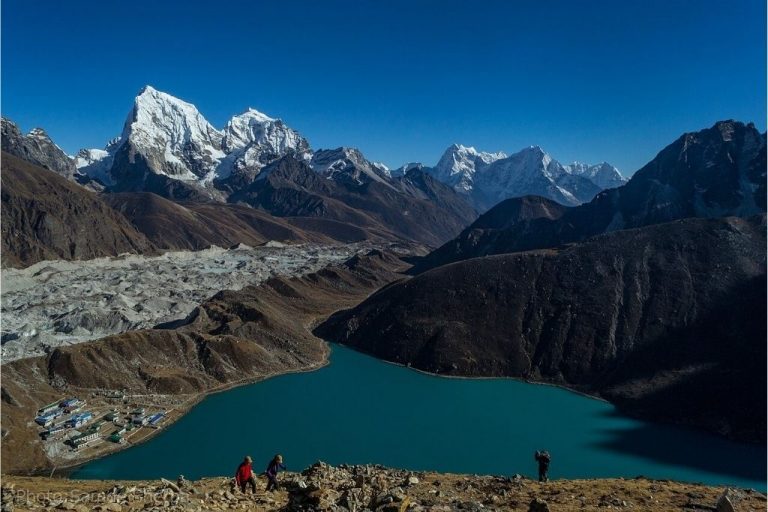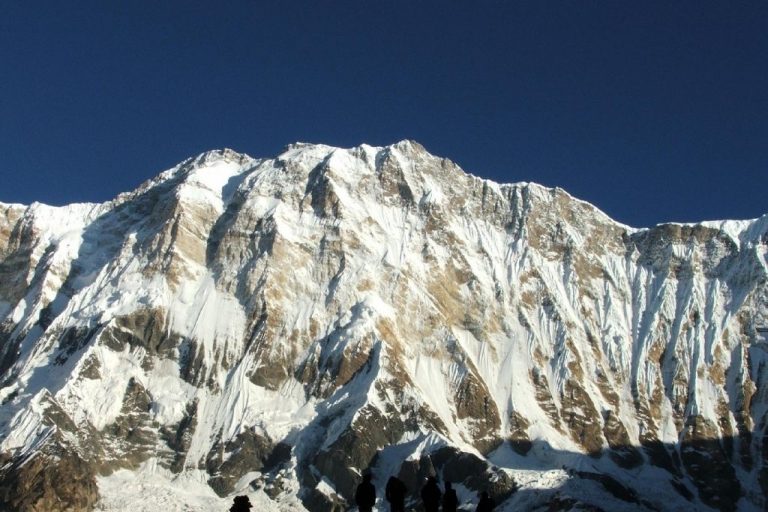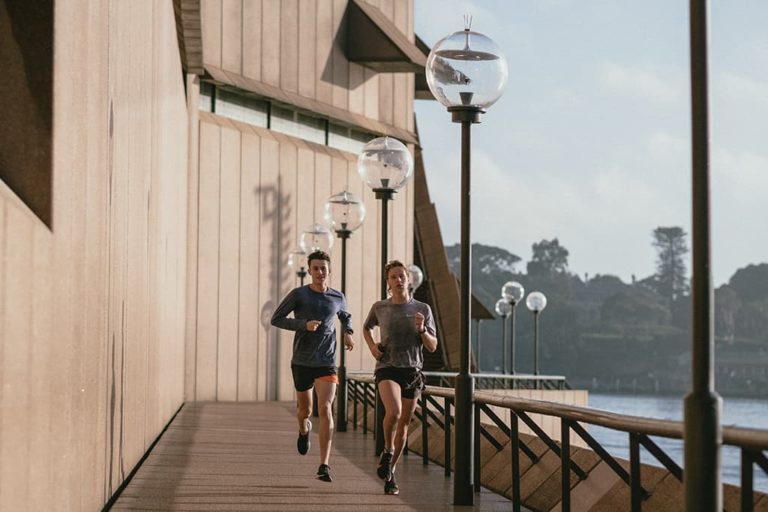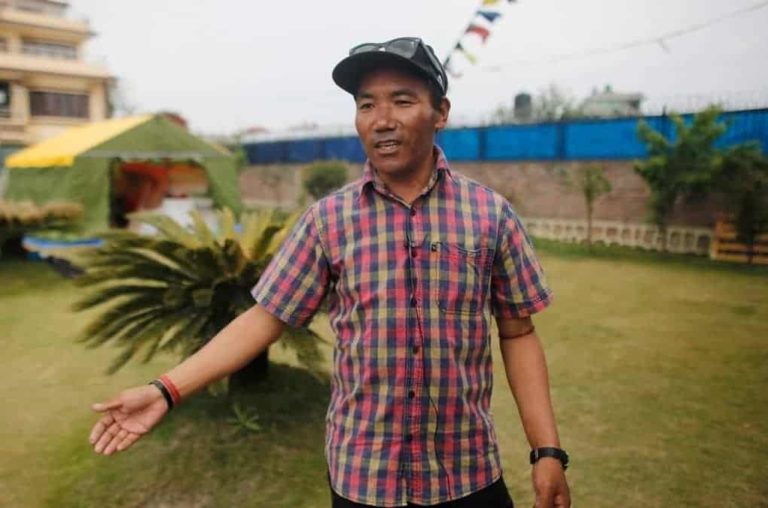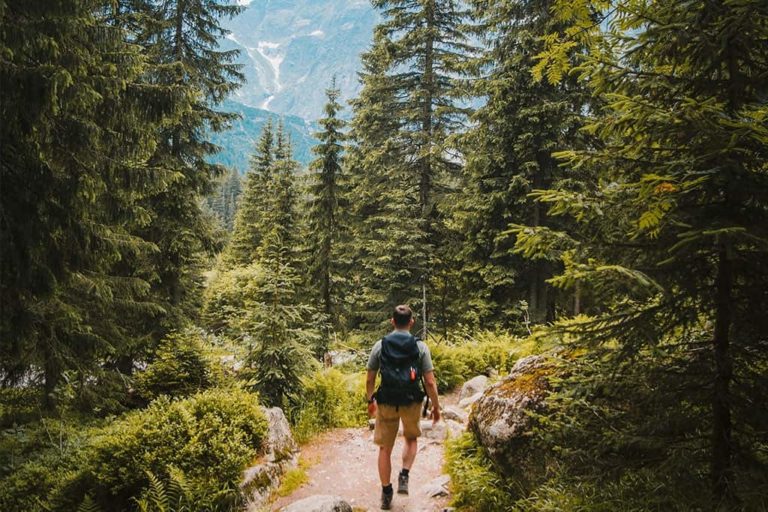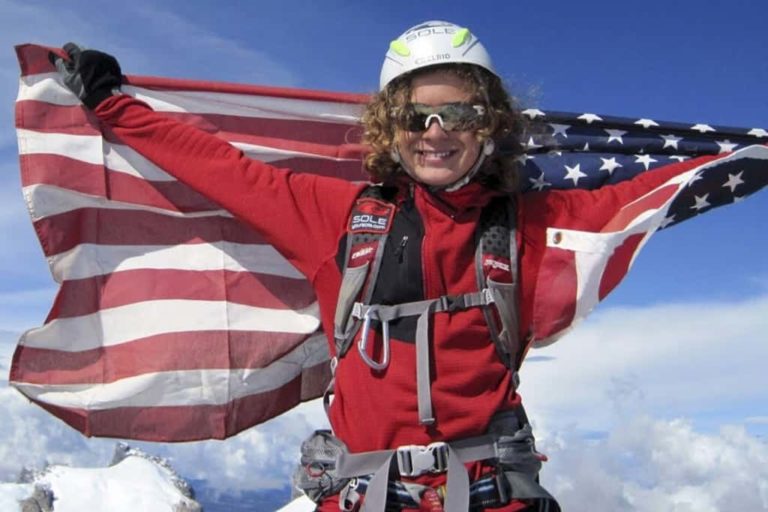Trekking is an activity that involves going on a long journey by foot, and a journey like that comes with struggles that will always feel ‘worth it’ after you reach your destination and see the spectacular views that leave you in awe.
To witness natural beauty, flora and fauna, or gorgeous landscapes take perseverance and patience.
Trekking, though considered as a leisure activity, takes you closer to nature and provides gratitude, strength, and spirituality.
😍 Want to connect with fellow travelers? Join our group😍
These are just lots of benefits of trekking to mention a few; they are:
1. Benefits of trekking- Improved Physical Fitness
The first thing that comes to mind while planning a trek is physical fitness. Most of us are so busy with the day-to-day work that we forget to take care of our physical health.
One of the significant benefits of trekking is improved physical health. You will be walking for 6-8 hours per day, right from the morning.
You will walk in the daylight. Your body will get the sunlight. It helps your body get sufficient Vitamin D, which helps strengthen your bones and muscles.
It boosts your immune system.
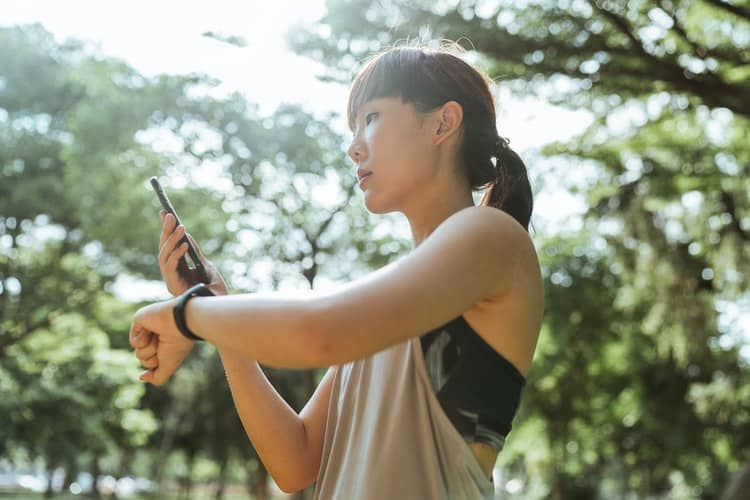
Trekking helps build your core strength and increases your stamina too. Walking for a long duration makes your leg muscles agile, flexible, and well-toned.
Lastly, frequent trekking benefits people with arthritis and back pain as it is a low-impact way of exercising.
2. Benefits of trekking- Rejuvenates Heart and Lungs
Trekking increases cardiovascular strength.
The uphill and downhill walk for hours in a natural environment makes the heart pump harder, leading to increased blood flow to the muscles and brains. The increased blood flow, in turn, improves the circulatory and respiratory systems. It decreases the risk of heart diseases and cancer.
3. Benefits of trekking- Weight Loss
Trekking involves walking through steep uphill and downhill trails for hours, making your body a fat-burning machine.
When you carry a full backpack on your trek, you will burn around 600 calories per hour (more than what you would burn at the gym). You will be shedding a lot of unwanted fats out of your body and improve metabolism.
4. Benefits of trekking- Improves Mental Health and Energizes Your Mood
Doctors recommend exercise like walking/trekking as a great way to improve mental health. Spending time outdoors cleanses your mind from negativity and worries.
Spending time in nature with a clean atmosphere rejuvenates your mind. It works as an antidepressant.
You will be away from the crowd, the work stress, and will be in the company of like-minded people. Thus, trekking helps reduce stress, which ultimately leads to a reduction in blood pressure.
It increases your emotional wellbeing and boosts your mood.
5. Benefits of trekking- Experience Flora and Fauna
One of the advantages of trekking is that you get to be up close with various species of animals, birds, and plants.
The mere feeling of encountering animals, birds, and plants in nature is a thrilling yet beautiful experience. I mean, it is a good story to tell your kids and your grandkids.
Trekking will also help you learn facts about the wild species of flora and fauna of the region you are exploring.
6. Benefits of trekking- Learn about local culture and food
Trekking to a destination requires spending most of your time en route.
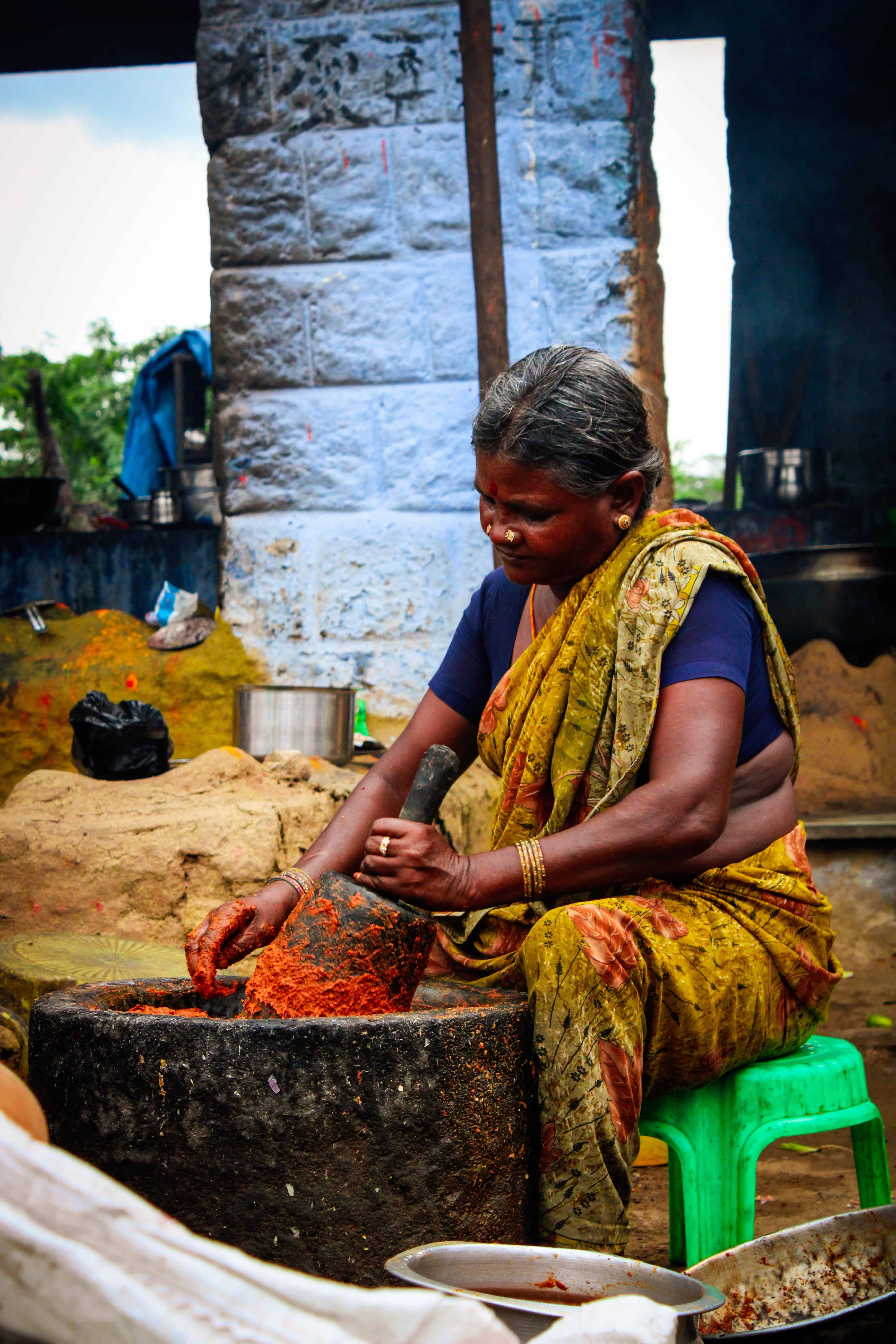
You eat and sleep in a local setting and meet people of different backgrounds throughout the process. You will learn so much about people, culture, traditions, and practices that were completely unknown to you.
Trekking in remote areas and witnessing people being happy for what little they have will teach you some real values of life too.
7. Benefits of trekking- Learn Survival Tactics
Trekking helps you get out of your comfort zone and makes you face the challenges first-hand. Trekking tests your mental and physical skills as you learn to cope up with unfamiliar territory with minimum resources.
You will learn basic but essential survival skills like starting a fire, finding and storing food and water, first-aid, making temporary shelters, and more.
8. Benefits of trekking- Make New Friends
Trekking also has social benefits.
Besides your trekking guides, you will also meet fellow trekkers with whom you may even create a lifelong friendship.
Adults with extensive social circles tend to have lower blood pressure and sound mental health. Finding like-minded people while trekking increases one’s sense of belonging and purpose.
Creating a new bond with the group members will also help you stay motivated on the challenging trails.
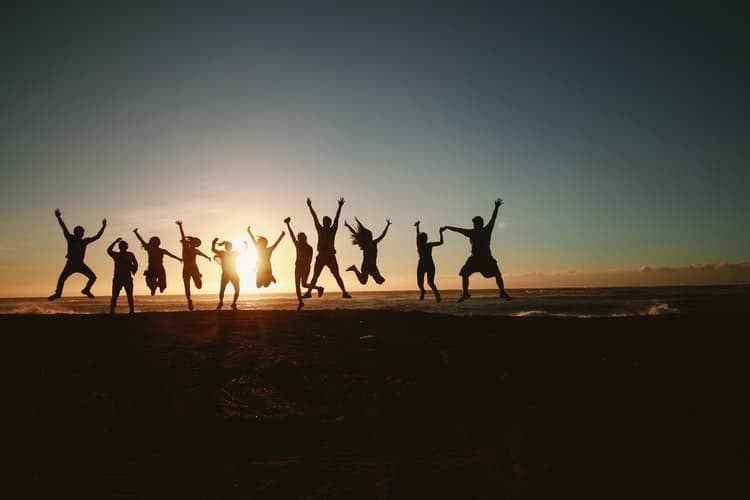
Trekking enables you to overcome the differences and increase your ability to accept the differences in people’s nature.
9. Benefits of trekking- Disconnect with Technology
Trekking is the best opportunity for you to disconnect from your gadgets and your pending work emails. It is time for you to keep those aside and admire the views that lie in front of you.
Trekking helps you reconnect with nature and self-reflect on your life and its goals. It lets you admire the surroundings and gives you inner peace.
10. Benefits of trekking- Learn Discipline and Teamwork
The long hours of walking not only test your physical strength but also tests your patience and determination.
To reach your destination, you need to abide by the guidelines that are given by your trekking guides. Failing to follow the guidelines will lead to high risks of accidents during the trek, so discipline is crucial.
Another thing is that you will learn about the importance of teamwork. Even while trekking solo, you need to coordinate with your trekking guides and porters as they help you complete your journey.
11. Benefits of trekking- Inner Cleanse
Trekking involves walking, sleeping, and eating in remote areas with no access to any urban materials.
You will be consuming more organic food, drinking more water, breathing fresh air, and avoiding coffee/alcohol and junk food for weeks. It revitalizes your body and feeling energized. You will also start feeling positive from within.
12. Benefits of trekking- Longevity
Frequently trekking gets you away from the city’s hectic life, pollution and grants you fresh air. Not to forget, the amount of water you will be drinking every day, combined with regular exercise.
It has been known that trekking for 8 kilometers at a slow pace every day is enough to reduce the potential risk of strokes and heart failure by 30%. And since trekking already improves your physical and mental health, it ultimately increases your life-span.
That’s it folks, the 12 benefits of trekking that you need to know if you plan to have your first trek to any destination you prefer. Remember, it does not have to be weeks long. What matters is that you started!
FAQs
What is the difference between hiking and trekking?
Let us put it simply. Hiking is an activity that includes a long walk in a natural environment on hiking trails or a normal path for a day or overnight.
Trekking, on the other hand, is a long journey that includes walking in a wild natural environment for multiple days.
Is trekking a part of an exercise?
Trekking is indeed a part of the exercise. It is an outdoor activity that works as a powerful cardio workout and tones the leg muscles.
Just like every other exercise, trekking also helps to keep your body active and healthy.
What should I eat while trekking?
It is tricky to pack food for treks. You will be eating whatever you are provided at the eateries or lodges en route to your destination. It is best to avoid meat and dairy products for safety reasons.
It would be better if you pack some food on your own like trail mix, whole fruits, dried fruits, energy bars, granola bars, chocolates, whole-grain tortillas, ready-made tuna salad packets, dried jerky, ready-to-eat cereals, canned fish/meat, individual packets of mayo or any sauce, whole-grain pasta, rice mix, marshmallows, and dried soups.
Remember, you need to drink a lot of water– at least 3-4 liters a day during the trek, so carry your hydration flask or bottled water.
Thus, it would be best to eat enough nutrients like carbohydrates, fats, protein, and fiber while trekking to keep your stamina intact throughout the trek.
What should I take for trekking?
The list of basic things to take for trekking are listed as below:
- Water bottle
- Snacks: trail mix, dry fruits, chocolates, energy bars
- Dry pack or Backpack
- Trekking shoes or hiking boots
- Cap/ Hat
- Sunglasses
- Trek pants or trousers
- Swiss knife
- Torchlight/ flashlight
- Hand sanitizer
- Sunscreen, sunblocks, lip balms to keep your skin moisturized
- Trek route map
- GPS /fitness tracker/ smartwatch
- First-aid kit
- Hiking pole (for support)
- Smartphones, camera
- Charger, power bank
- Cash (local currency)
Is trekking alone dangerous?
Trekking alone is not completely dangerous. It really depends on the place/country you are at and the trek’s difficulty level.
A solo trek can be a wonderful experience, but there can be risks like an injury, animal attack, bad weather, a bad fall, or getting lost. When trekking alone, you need to research thoroughly about the trek you are going to commence.
It is even better if you hire a porter.
What are the tips for staying safe while traveling alone?
The tips to staying safe while traveling alone are listed as below:
- Pack the essential trekking equipment
- Inform your family and friends about where you are trekking to and stick to the plan.
- Know about what kind of trek you are about to do.
- Be cautious of strangers
- Carry a travel insurance policy certificate with you.

